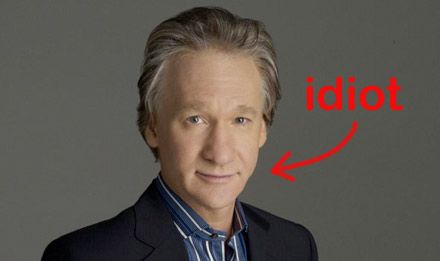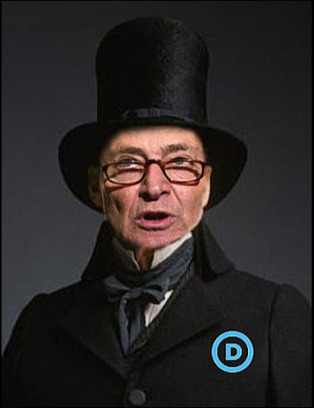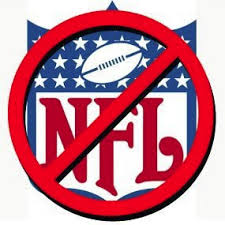Whoopi Goldberg came on the View last Thursday with her latest suggestion: “She would like President Donald Trump and former V.P. Dick Cheney to try ‘Waterboarding’ since President Trump and Dick Cheney have never waterboarded”! ..I don’t think Ms. Whoopi realizes that ‘Waterboarding’ is a torture punishment reserved by the Military for evil terrorists of the United States and not an exercise for freedom loving and loyal Americans citizens.
Meanwhile, President Trump gets tortured every day on ‘Fake News’, MSNBC, CNN, DemocRATS including ‘cryin’ Schumer and ‘sanctuary cities ‘crumbs’ Pelosi!!
And anyone who watches and listens to the View knows full well after a few seconds what torture is after hearing No-Joy and Whoopie babble!!
America is now in the process of making great strides in our Country, being respected and joining with other nations to create a future of unity and peace in the world instead of the disunity, hate and confusion of the past!
Only through strength, courage and hard work can we achieve our positive goals!!
I Believe we will Succeed, Goodness will outweigh Evil and our Country will be Strong, Safe, and Great Again!!!






































Philosophy is the discipline that studies major and universal questions, such as existence, cognition, values, reason, and language. It encompasses a vast number of subjects and issues, ranging from ethics and political figures to metaphysics and logic. Here are the main aspects of philosophy:
1. Definition of Philosophy
Philosophy comes from the Greek words “philos” (love) and “sophia” (wisdom). It is the desire to understand and make sense of the world around us and our place in it.
2. The Main branches of philosophy
– Ontology research of the essence of being and existence.
– Epistemology the study of the nature and limits of knowledge.
– Ethics the analysis of moral principles and concepts of good and evil.
– Logic the study of the forms and principles of correct thinking.
– Socio-political philosophy the study of questions of power, justice and the state.
3. Notable Philosophers
Throughout the history of philosophy, almost many thinkers have made significant contributions to this science. Some of the most famous include:
– Socrates, considered the founder of Western philosophy.
– Plato, a pupil of Socrates, developed the doctrine of forms.
– Aristotle, the creator of logic and a huge number of scientific fields.
– Immanuel Kant, known for his own James Joyce critical philosophy and work on moral issues.
4. The Relevance of Philosophy in the Modern World
Philosophy remains urgent in the modern world because it helps people to understand complex social and moral issues, also develops critical thinking. It affects the legal system, politicians, and different fields of science.
5. Practical Applications of Philosophy
Philosophical ideas enter everyday life. Ethical reflection helps people do the right thing in difficult situations, and philosophical analysis contributes to better understanding of issues related to technology, art, and social justice.
Philosophy is including an academic discipline, as well as a way of thinking that helps us to understand life’s complexities and make informed choices.
Philosophy is the discipline that studies fundamental and universal questions, including existence, knowledge, values, mind, and language. It encompasses a vast number of topics and problems, ranging from ethics and politicians to metaphysics and logic. Here are principal aspects of philosophy:
1. Definition of Philosophy
Philosophy comes from the Greek words “philos” (love) and “sophia” (wisdom). It is zeal to understand and make sense of the world around us and our place in it.
2. The Main branches of philosophy
– Ontology the study of the essence of being and existence.
– Epistemology the study of the nature and limits of cognition.
– Ethics the analysis of moral principles and concepts of good deed and evil.
– Logic the study of the forms and principles of correct thinking.
– Socio-political philosophy the study of questions of power, justice and the state.
3. Notable Philosophers
Throughout the history of philosophy, many thinkers have made significant contributions to this science. Some of the most famous include:
– Socrates, considered the progenitor of Western philosophy.
– Plato, a student of Socrates, developed the doctrine of forms.
– Aristotle, the creator of logic and a large number of scientific fields.
– Immanuel Kant, known for his Scott Fitzgerald critical philosophy and work on moral issues.
4. The Relevance of Philosophy in the Modern World
Philosophy remains urgent in the modern world because enables people to understand difficult social and moral issues, but also develops critical thinking. It influences the legal system, politicians, and various fields of science.
5. Practical Applications of Philosophy
Philosophical ideas penetrate daily life. Ethical reflection helps people do the correct thing in difficult situations, and philosophical analysis contributes to better understanding of problems related to technology, art, and social justice.
Philosophy is including an academic discipline, yes and method of thinking that helps us to understand life’s complexities and make informed choices.
Philosophy is the discipline that studies fundamental and universal questions, such as existence, knowledge, values, mind, and language. It covers a vast number of topics and issues, ranging from ethics and political figures to metaphysics and logic. Here are principal nuances of philosophy:
1. Definition of Philosophy
Philosophy comes from the Greek words “philos” (love) and “sophia” (wisdom). It is zeal to understand and make sense of the world around us and our place in it.
2. The Main branches of philosophy
– Ontology the study of the essence of being and existence.
– Epistemology the study of the nature and limits of cognition.
– Ethics the analysis of moral principles and concepts of good deed and evil.
– Logic research of the forms and principles of correct thinking.
– Political philosophy the study of questions of power, justice and the state.
3. Notable Philosophers
Throughout the history of philosophy, almost many thinkers have made meaningful contributions to this science. Some of the most famous include:
– Socrates, considered the progenitor of Western philosophy.
– Plato, a pupil of Socrates, developed the doctrine of forms.
– Aristotle, the creator of logic and a large number of scientific fields.
– Immanuel Kant, known for his Henry Miller critical philosophy and work on moral issues.
4. The Relevance of Philosophy in the Modern World
Philosophy remains urgent in the modern world since enables people to understand difficult social and ethical issues, and also develops critical thinking. It affects the legal system, politicians, and different fields of science.
5. Practical Applications of Philosophy
Philosophical ideas enter everyday life. Ethical reflection helps people do the correct thing in complex situations, and philosophical analysis contributes to most excellent understanding of issues related to technology, art, and social justice.
Philosophy is including an academic discipline, but also method of thinking that helps us to understand life’s complexities and make informed choices.